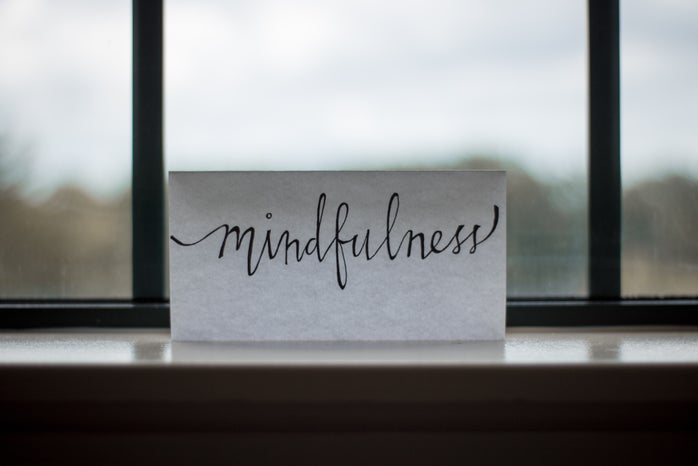What is Dialectical Behavioral Therapy?
Dialectical Behavioral Therapy is a modified version of Cognitive Behavioral Therapy (CBT), where the main goals of treatment are to emphasize the importance of living in the moment, developing healthy stress management skills, regulating emotions, and improving relationships with others. The use of DBT was initially created as a treatment for borderline personality disorder but has been adopted by psychiatrists all over the world as a means to treat various other mental health conditions such as substance abuse, eating disorders, and even post-traumatic stress disorder in some instances.
There are many ways DBT skills can be encouraged, including in group therapy settings, where behavioral skills are taught to many people at once, or individual therapy, where a professional aids in implementing those skills to solve personal challenges on a more intimate basis.
Mindfulness
Arguably one of the most important benefits of DBT is the development of mindfulness skills. Mindfulness helps the patient focus on being present in the time and space they occupy at that specific moment, and it is not always yoga and breathing exercises. I know how easy it is to get caught up in past mistakes or future plans, and mindfulness aids in redirecting attention to the five senses in the here and now. Mindfulness skills include:
- Wise Mind: Using a healthy balance of logical thinking and emotional thinking together to make rational decisions
- Grounding: Rooting yourself in the here and now
- 5-4-3-2-1: Naming what you experience with your senses (5 things you can see, 4 you can feel, 3 you can hear, 2 you can smell, 1 you can taste)
Emotional Regulation
It is often difficult to identify the numerous emotions that we feel throughout any given moment. Skills regarding emotional regulation allow you to process and navigate through powerful emotions in a more effective way. Being able to recognize and radically accept intense negative emotions aids in reducing emotional vulnerability and helps in creating an appreciation for positive emotional experiences. Emotional regulation skills include:
- Opposite to Emotion: Moving forward in spite of the discomfort
- STRENGTH: Reducing emotional vulnerability (Sleep, Take care of your body, Resist target behaviors, Exercise, Nutrition, Gain mastery, Time for yourself, Healthy self-talk)
- ABC: Increasing emotional resistance (Accumulate positive experiences, Build mastery, Cope ahead of time)
Walking the Middle Path
Walking the middle path is heavily encouraged in DBT because its main focus is to recognize the existence of two dialectics/polarizing opposites and assess if and how it is possible to find a happy medium between them. Encouraging compromise gives the difference in beliefs an equal amount of validation. Some of my personal favorite Walking the Middle Path skills include:
- Defusion: Thoughts are stories told by our mind
- Validation: Both of us are partially right
- Lemonade: Finding the good in the unpleasant
Interpersonal Effectiveness
Living with other people is difficult, and it’s important to practice effective interpersonal communication skills to ensure that your thoughts and feelings are being heard and understood just as much as the people around you. These skills are meant to encourage assertive interactions with others in order to keep present and future relationships safe, healthy, and respectful. Interpersonal effectiveness skills include:
- GIVE: Maintain relationship effectiveness during discussion (Gentle, Interested, Validate, Easy Manner)
- FAST: Maintain self-respect (Fair to self, Apologize less, Stick to value, Truthful)
- DEARMAN: Getting what you want or refusing requests (Describe the situation, Express your feelings, Assert your wishes, Reinforce positive behaviors, Mindfulness, Appear confident, Negotiate)
Distress Tolerance
Some individuals may find themselves in crisis situations, and DBT skills are wonderful to use while assessing the situation and accepting your feelings as they are. DBT distress tolerance skills focus on techniques including distraction, improving the current moment, practicing self-care/self-soothing, and weighing the positives and negatives associated with not tolerating distress. Repetitive practice of distress tolerance techniques helps prepare and cope with experiencing intense emotions while maintaining an optimistic long-term outlook. Distress tolerance skills include:
- Willingness: Being open and doing what is needed
- Turning the Mind: Repeatedly accepting the unpleasant
- Ride the Wave: Feeling intense emotion but not acting
- Self Soothe: Using all five senses to calm the emotional mind
- ACCEPTS: Distraction from extreme stress during a crisis (Activities, Contributions, Comparisons, Emotions, Push away, Thoughts, Sensations)
- TIPP: Interventions to calm the body’s stress response (Temperature reduction, Intense exercise, Paced breathing, Progressive muscle relaxation)
Using the Skills
Using just the most basic of DBT skills can aid tremendously in emotional, mental, and spiritual growth, and I firmly believe it is vital to have access to these resources regardless of financial capability. Using the strategies such as the ones listed can help in accepting the things we cannot change, while simultaneously encouraging us to be flexible with what the world throws at us.





